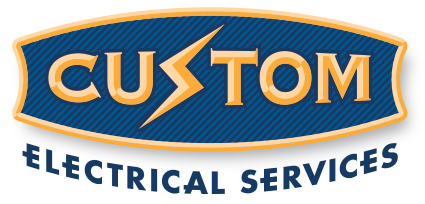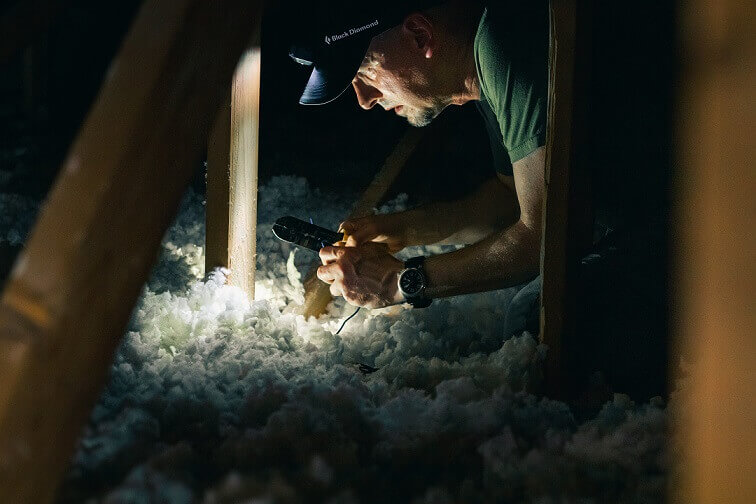As a homeowner or a renter, conducting a do-it-yourself home energy audit can help you save money on your utility bills and reduce your impact on the environment. Even new or newer homes can provide you with opportunities to keep money in your bank account. Here are some of the important aspects to look at in your home.
What is Do-It-Yourself Energy Audit?
An energy audit gives you an opportunity to review the energy performance in the home and identify areas to improve energy costs. You can make changes to how you currently use systems or appliances in your home.
Conduct an energy audit every few years to uncover problem areas. You can also find professionals in your area to conduct an energy assessment. Utility companies may also offer this service. Custom Electrical Services can help you address any electrical issues.
Check for Air Leaks
Doors and windows are obvious areas to look for a draft getting in. Check also electrical outlets, baseboards, vents, and fans for air coming through.
Outside, inspect areas where two different building materials meet, outdoor water faucets, and corners of the home.
Get tips on detection and how to seal areas where you’ve found a leak from the Department of Energy.
The potential energy from reducing drafts can be from 10-20%.
Insulation
The level of insulation in your home was likely adequate for the time it was built but can probably be improved. Insulation that is 10 years or older should be checked for damage, mold, or rodents.
Adding to the insulation in your home can improve your home’s efficiency. Installing insulation in your attic or basement is manageable by most people, but the walls can be more difficult, and you may need the help of a professional. The Iowa Energy Centre provides an excellent guide on insulating your home.
Inspect Heating and Cooling Systems
Annually inspect your heating and cooling systems or as recommended by the manufacturer. Check your furnace filters, if applicable, and replace them if needed. Check the ductwork for dirt streaks as it could indicate air leaks and they should be sealed. Insulate ducts or pipes that travel through unheated spaces.
If your heating or air conditioning unit is more than 15 years old, consider replacing it with an energy-efficient model.
If your hot water tank is more than 10 years old, it may be losing some heat. Tanks built around that time were lined with fiberglass unlike the more efficient foam used today. If it’s not time to upgrade, look into getting an insulating jacket to prevent heat from escaping.
A smart thermostat can also help you to use energy efficiently in your home. If you don’t already have one, consider installing one.
Lighting
Examine the lighting you use and consider swapping inefficient bulbs with more energy-efficient choices such as energy-saving incandescents, compact fluorescent lamps (CFLs), or light-emitting diodes (LEDs). With the Iowa Be Bright program, you can get instant savings on LED lightbulbs from participating retailers and electric utilities.
Dimmer switches can lower the amount of energy you use. We can help you to determine where best to install them in your home.
Appliances and Electronics
Nearly every home will use appliances and electronics daily and this will have an impact on your energy bill. Consider how you use your appliances and electronics and decide if you may want to use them less. You can estimate the use of your appliances to understand their costs per year with this calculator. To reduce costs associated with appliances and electronics, you may want to:
- Unplug them when not in use
- Use the item less often or change the settings
- Purchase new appliances that are energy-efficient
- Use a power bar and you can easily turn off multiple appliances at night or when you leave home
Check your Generator
A home generator keeps your power on during an outage. An energy audit is a good time to review your power situation if you experience an outage. If you have a generator, most manufacturers recommend annual maintenance.
More Ways to Save
The Energy Star website offers lots of tips on improving your energy efficiency. You can also use this energy yardstick to evaluate your home energy use against others.
How We Can Help
If you’ve performed a do-it-yourself energy audit you may have uncovered ways to save money and energy. Contact us about installing electrical outlets, ceiling fans, electric garage heaters, smart thermostats, and dimmer switches.
Whole house surge protection can protect your home appliances and electronics in the event of a blackout and we also install or maintain generators.
We can also review your energy use and make recommendations to reduce your energy consumption. If you’re looking to reduce your energy consumption, we want to help get you there.
Photo by Greg Rosenke on Unsplash



